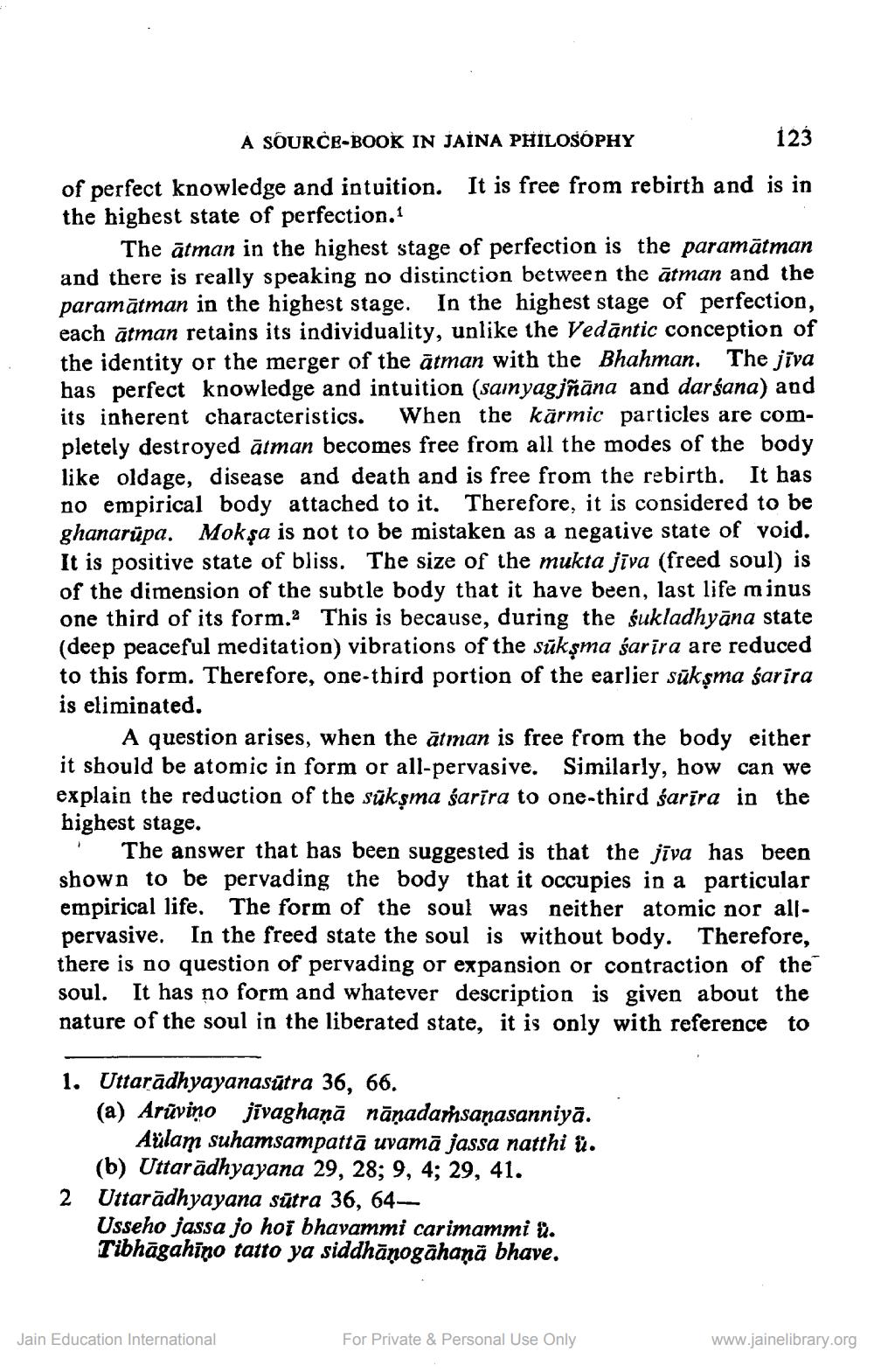________________
A SOURCE-BOOK IN JAINA PHILOSOPHY
123 of perfect knowledge and intuition. It is free from rebirth and is in the highest state of perfection.
The ātman in the highest stage of perfection is the paramātman and there is really speaking no distinction between the ātman and the paramātman in the highest stage. In the highest stage of perfection, each ātman retains its individuality, unlike the Vedāntic conception of the identity or the merger of the ātman with the Bhahman. The jīva has perfect knowledge and intuition (samyagjñāna and darśana) and its inherent characteristics. When the kārmic particles are completely destroyed ātman becomes free from all the modes of the body like oldage, disease and death and is free from the rebirth. It has no empirical body attached to it. Therefore, it is considered to be ghanarüpa. Mokşa is not to be mistaken as a negative state of void. It is positive state of bliss. The size of the mukta jīva (freed soul) is of the dimension of the subtle body that it have been, last life minus one third of its form. This is because, during the sukladhyāna state (deep peaceful meditation) vibrations of the sūkşma śarīra are reduced to this form. Therefore, one-third portion of the earlier sūkşma sarira is eliminated.
A question arises, when the ātman is free from the body either it should be atomic in form or all-pervasive. Similarly, how can we explain the reduction of the sūksma śarīra to one-third śarīra in the highest stage.
! The answer that has been suggested is that the jīva has been shown to be pervading the body that it occupies in a particular empirical life. The form of the soul was neither atomic nor allpervasive. In the freed state the soul is without body. Therefore, there is no question of pervading or expansion or contraction of the soul. It has no form and whatever description is given about the nature of the soul in the liberated state, it is only with reference to
1. Uttarādhyayanasūtra 36, 66. (a) Arūvino jīvaghaņā nāņadarhsanasanniyā.
Aulam suhamsampattā uvamā jassa natthi ů. (b) Uttarādhyayana 29, 28; 9, 4; 29, 41. 2 Uttarādhyayana sūtra 36, 64
Usseho jassa jo hoi bhavammi carimammi 2. Tibhāgahīno tatto ya siddhānogāhanā bhave.
Jain Education International
For Private & Personal Use Only
www.jainelibrary.org




